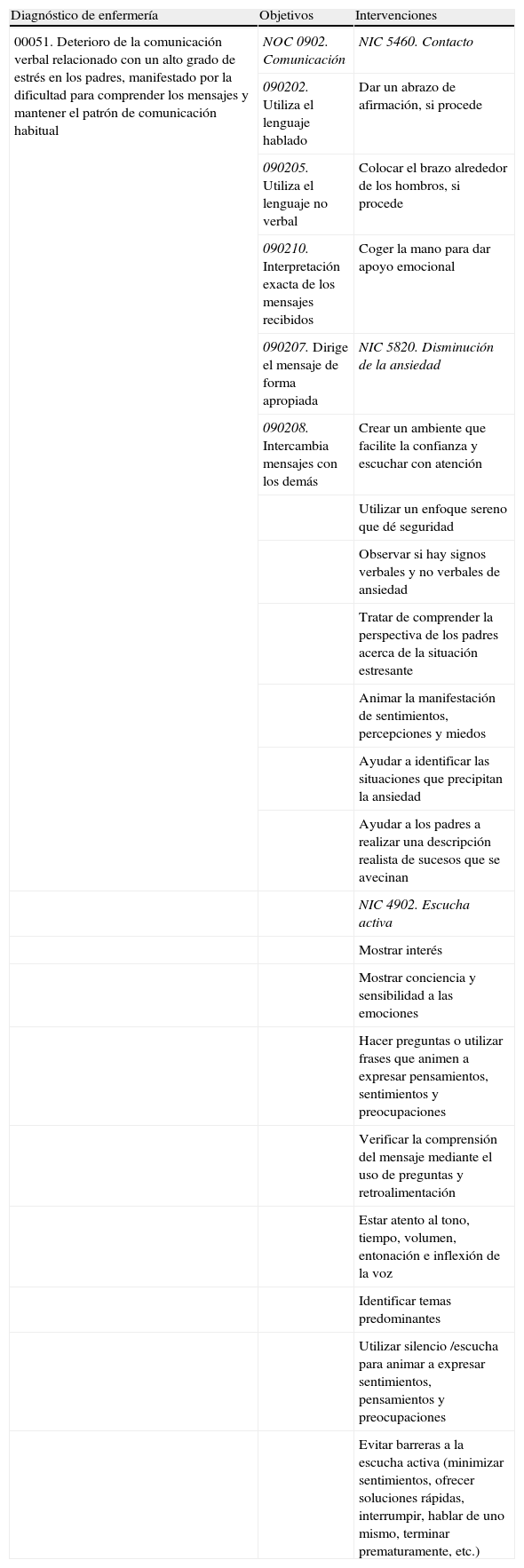El propósito de este artículo es identificar el tipo de demandas de ayuda que realizan los padres a los profesionales sanitarios en general y a las enfermeras en particular, que atienden a sus bebés en las unidades de cuidado intensivo neonatal. Para ello se realizaron 2 entrevistas personales a los progenitores de 4 neonatos hospitalizados que se prestaron voluntariamente a este fin. A través de la utilización de una guía de preguntas abiertas (previamente elaborada) y teniendo en cuenta las condiciones necesarias para el establecimiento de la relación de ayuda. Los padres y madres entrevistados tuvieron la oportunidad de poder expresar y explicar todo lo que sentían y vivían, a un profesional que les escuchaba activamente, los entendía y validaba sus sentimientos, Al mismo tiempo, se incrementó la obtención de información relevante en relación con el tipo de ayuda que los padres solicitaban y que se tuvo en cuenta, tanto en la planificación de los cuidados que se deben proporcionar como en las intervenciones enfermeras que hay que realizar con dichas familias. Los resultados muestran como la mayoría de las demandas de los padres están relacionadas con sus necesidades de comunicación, aprendizaje y sentirse ocupados. Se presenta un plan de cuidados estandarizado que utiliza las taxonomías NANDA, NOC y NIC mostrando como estas necesidades se pueden gestionar por los profesionales de enfermería desde la relación de ayuda, teniendo en cuenta sus ejes principales: el respeto, la comprensión y la empatía.
The aim of this article was to identify the kind of help that parents with newborns admitted to the neonatal intensive care unit seek from health professionals in general and from nurses specifically. Two personal interviews were conducted with the parents (father or mother) of four hospitalized neonates. The parents volunteered to participate. Through the use of previously-established, open-ended questions and under conditions facilitating a supportive relationship, the parents were interviewed by a nurse who listened actively, tried to understand, and validated their feelings. During the interview, the parents had the opportunity to express their feelings and experiences.
At the same time, these interviews increased the data available on the type of help needed by parents, taking into account both nursing care planning and the type of nursing interventions to be performed in these families. The results show that most of the help required by families is related to their own needs: communication, learning and feeling occupied. We present a standardized care plan that follows the NANDA, NOC and NIC taxonomies and shows how these needs could be managed by nursing professionals, based on a supportive relationship that includes three main elements: respect, understanding, and empathy.








